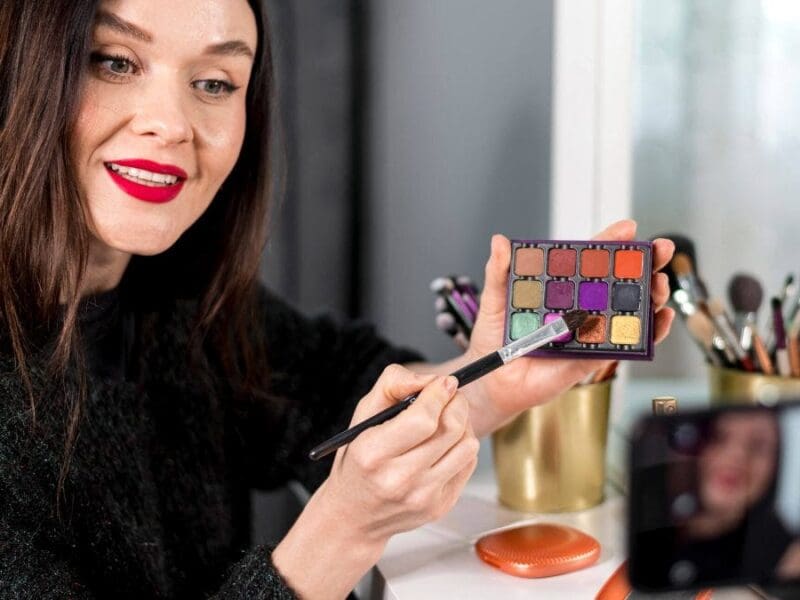
The Scent of Success: Exploring the Perfume Industry
In a world awash with sensory experiences, few are as evocative and enchanting as the waft of a beautifully crafted perfume. The perfume industry, an intricate blend of art, science, and commerce, has a rich history and a thriving presence that captivates the senses and contributes significantly to the global economy.
Today, we’ll delve into the perfume industry’s origins, the art of fragrance creation, market trends, and the cultural significance of scents that have stood the test of time.
A Fragrant Journey Through Time: The Origins of Perfumery
Perfumery is a tale that unfolds across the annals of history, dating back to ancient civilizations that revered fragrances for their spiritual, cultural, and personal significance. From the opulent scents of Egyptian tombs to the fragrant gardens of Persia, perfumery has been an integral part of human expression for millennia.
- The earliest recorded use of perfumes dates back to ancient Mesopotamia, where clay tablets documented fragrant recipes.
- The ancient Egyptians used aromatic oils and resins in religious ceremonies and daily life, with perfumes considered offerings to the gods.
Perfume Crafting: The Intersection of Art and Science
At the heart of the perfume industry lies the intricate craft of blending fragrant notes to create captivating compositions. Perfumers, often referred to as “noses,” are creative maestros who combine natural and synthetic ingredients to produce scents that resonate with individuals on a deeply personal level.
Fascinating Fact:
- Perfumery education can take years of rigorous training, involving the memorization of hundreds of individual scents and their chemical profiles.
Unveiling the Arabian Perfume Heritage
The Arabian Peninsula has a rich tradition of perfumery that spans centuries. Arabian perfumes, known for their luxurious and intoxicating scents, are a testament to the region’s deep connection with fragrances.
These perfumes often incorporate exotic ingredients like oud, rose, and saffron, creating olfactory masterpieces that have become globally sought-after.
- Oud, a resin derived from agarwood trees, is a prized ingredient in Arabian perfumery and is often referred to as “liquid gold.”
- Arabian perfumery techniques were historically passed down through generations, creating a lineage of skilled perfumers.
Arab Perfume for Women: A Journey of Elegance
Arab perfume for women is an expression of femininity, elegance, and cultural identity. Arabian perfumes for women are often characterized by their intricate floral and oriental notes, which reflect the grace and beauty associated with the region.
Did You Know?
- Bakhoor, a traditional Arabian incense, is used to infuse homes with captivating fragrances during special occasions and gatherings.
Arabic Perfume for Men: Embodying Strength and Tradition
Arabic perfume for men is a symphony of robust, woody, and spicy notes that capture the essence of masculinity. These scents evoke a sense of strength, honor, and the enduring traditions of the Arab culture.
Statistical Insight:
- The Middle East and Africa region accounts for a significant share of the global fragrance market, driven by the popularity of Arabian perfumes.
The Modern Perfume Market: From Boutiques to E-Commerce
The perfume industry has evolved from exclusive boutiques to the digital realm, making fragrances accessible to a global audience.
The rise of e-commerce platforms has revolutionized how consumers discover and purchase perfumes, and it has given rise to the emergence of niche and indie perfume brands that cater to diverse tastes.
Statistical Insight:
- The global perfume market is projected to reach a value of $95.45 billion by 2027, with online sales contributing significantly to this growth.
Perfume as Cultural Identity: From Arabia to the World
Perfumes transcend physical boundaries and carry cultural significance that resonates across continents. Arabian perfumes, in particular, have found a global audience, influencing the fragrance preferences of individuals from diverse backgrounds.
These scents not only enhance personal allure but also serve as a bridge connecting people to the rich heritage of the Arabian Peninsula.
- Arabian perfumes have inspired perfumers around the world, leading to the incorporation of oud and other traditional Middle Eastern ingredients in modern fragrances.
- The scent of Arabian perfumes is often associated with luxury, opulence, and exclusivity.
Fragrance for the Future: Innovations and Sustainability
The perfume industry is continuously evolving, driven by innovation and a growing awareness of environmental sustainability. Perfumers are exploring new ways to source ingredients responsibly, reduce packaging waste, and create scents that align with the values of the modern consumer.
Fascinating Fact:
- Sustainable perfumery involves using renewable ingredients, minimizing carbon footprints, and promoting ethical practices throughout the supply chain.
Conclusion
The world of perfumery is a captivating tale of craftsmanship, culture, and commerce. From ancient civilizations to modern times, fragrances have transcended time and space, leaving an indelible mark on our senses and society.
The Arabian perfumery heritage stands as a testament to the enduring power of scents to weave stories, evoke emotions, and enhance our lives. As the perfume industry continues to evolve, one thing remains certain—the journey of scent is an ongoing narrative that resonates with us all.
With every spritz of Arabian perfume, we inhale the essence of a rich cultural legacy—a legacy that encapsulates the beauty, history, and artistry of the perfume industry and its role in shaping the world’s olfactory landscape.
Author Bio:
Sayed Sayeedur Rahman is a professional digital marketer, SEO specialist, and content writer. He’s a certified professional with extensive professional experience working with USA and UK-based companies to grow their businesses. He’s the Co-Founder of TechLookBD digital marketing agency.







